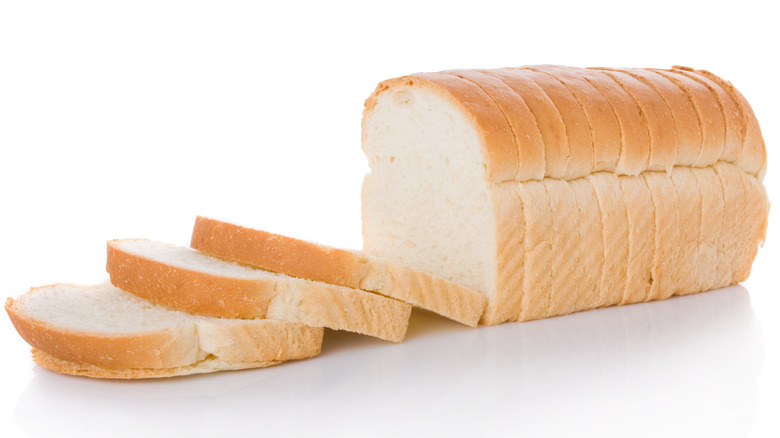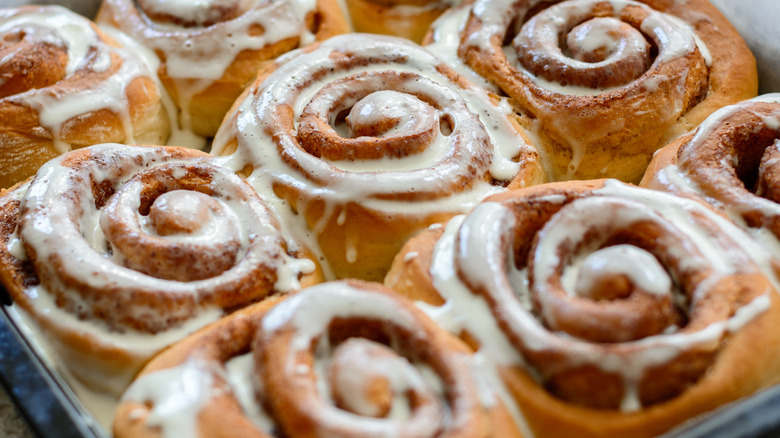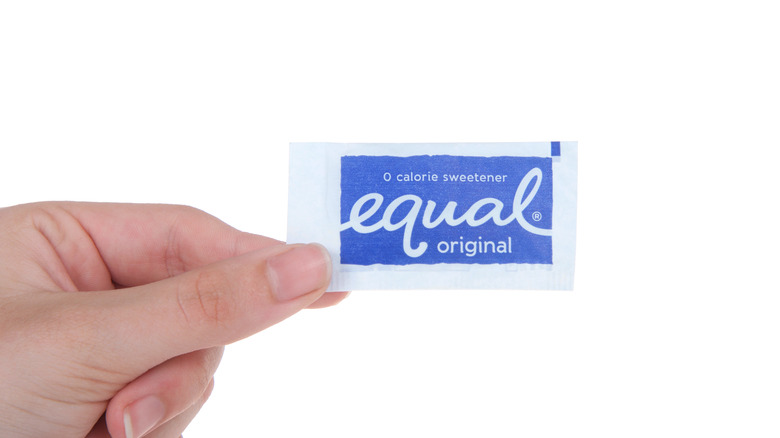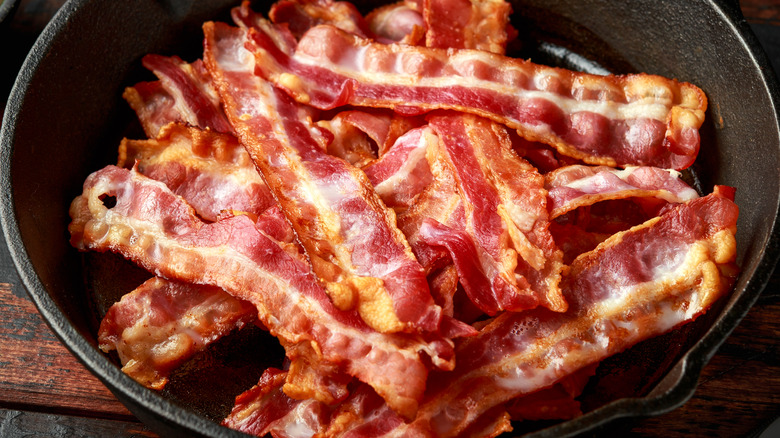Foods You Should Avoid When Dealing With Depression
Depression can be debilitating, affecting how we can carry on with our lives. According to a 2012 study in the Journal of Medicine and Life, just one-fourth of people with depression can access proper medication and therapy, and even then, they can suffer from relapses.
Researchers are looking at how nutrients such as amino acids, minerals, and B vitamins can improve the production of neurotransmitters. That's because low levels of neurotransmitters such as dopamine are thought to be associated with depression. Certain foods also promote inflammation, which can contribute to symptoms of depression.
A 2015 review in Cellular Physiology and Biochemistry said that the typical Western diet laden with sugary drinks, refined food and grains, and processed meats can increase your risk of depression. On the other hand, olive oil, fish, fruits, vegetables, nuts, legumes, poultry, dairy, and unprocessed meat might help ease symptoms of depression.
Although it's difficult to prove whether eating certain types of foods cause depression or being depressed makes you eat certain types of foods, the research points to certain classes of foods and drinks that you may want to limit if you have depression.
Alcohol
Alcohol use disorder (AUD) and depression often occur together, according to a 2019 article in Alcohol Research. This can be seen as a cycle that keeps people stuck. Think about it — you have a bad day at work, you have wine, which might make you depressed the next day at work, then you have more wine the next night.
Although light and moderate drinking may not be associated with depression, more than that can significantly increase your depression risk, according to a 2019 article in Acta Psychiatrica Scandinavica.
Excessive alcohol can create inflammation in your gut. This inflammation is often linked to depressive symptoms. Over time, alcohol can change the microbiota in your gut, which can contribute to depression (via a 2020 study in Cell Reports).
If you take medication for depression, the National Alliance on Mental Illness suggests monitoring how your antidepressant makes you feel before you consume alcohol. Alcohol already can make you drowsy, and so can your antidepressant. In addition, alcohol can reduce the effectiveness of some antidepressants, and combining alcohol with certain antidepressants can lead to severe side effects.
Refined grains and high-glycemic foods
Refined grains are different from whole grains in that they are missing a key part of the whole grain. Much of the protein and other nutrients are removed from refined grains. Some refined grains are enriched with certain nutrients such as iron, folate, and B vitamins, but often they're missing the fiber. Examples of refined grains include white bread and rice, foods with white flour, and corn grits.
A 2019 study in the European Journal of Nutrition found that eating a diet rich in refined grains is linked to depression and anxiety disorders in women. On the other hand, eating non-refined grains and vegetables is associated with a lower risk of depression, and less severe symptoms of depression among those who do have it, according to a 2020 study in the European Journal of Nutrition. These types of foods are common in the Mediterranean Diet.
Refined grains are also typically high on the glycemic index, which is how quickly certain foods affect your blood sugar. A 2015 article in The American Journal of Clinical Nutrition found that for women who have reached menopause, eating more foods that score high on the glycemic index is linked to a higher risk for depression.
Sugary foods and drinks
Similar to refined grains, sugary foods and soft drinks tend to have a high glycemic index. High intake of sugar also causes inflammation in the body that can be linked to depressive symptoms.
A 2017 study in Scientific Reports said that men are particularly susceptible to the sugar-depression connection. Men who took in high amounts of cakes, biscuits, sweetened coffee or tea, or soft drinks over five years have a 23% higher incidence of mental disorders.
The study also found that depression is more likely to recur if your diet is high in sugar. You might think, "Okay, well, what if this is because people who are depressed use sugar to feel better?" The researchers didn't find this to be the case.
How much sugar is too much? A 2019 meta-analysis in the Journal of Affective Disorders said that two sugary drinks per day might increase your risk of depression by 5%, but three drinks bump it to 25%.
However, sugar may not be solely to blame. A 2011 study in Public Health Nutrition blamed the inflammation-inducing trans unsaturated fatty acids in processed foods such as muffins, doughnuts, and croissants for contributing to depression.
Artificial sweeteners
Okay, so if sugary drinks and sugar-laden desserts are linked to depression, perhaps you could opt for sugar substitutes. Not so fast, especially if you're a woman. A 2017 article in Scientific Reports found that women who used artificial sweeteners or drank diet sodas were more likely to have depression.
Researchers have looked a little closer at aspartame and its link to depression. A 2014 study in Research in Nursing & Health conducted an experiment about aspartame to determine causation. The researchers had people consume 25 milligrams of aspartame per kilogram of their body weight per day for eight days. If you do the math, that would be 1,700 milligrams per day for someone weighing 150 pounds.
After just eight days, people were more irritable, felt depressed, and had less spatial orientation, which shows that aspartame can affect the brain. However, you might not be too concerned if you consume an occasional diet soda, because a typical can of diet soda has 200 milligrams of aspartame, which is far less than the amount of aspartame provided to the study participants each day.
Either way, fruit may be a better way to satisfy your sweet tooth if you're looking to cut down on added sugars.
Red and processed meats
Like bacon? You might need to hold off on that BLT if you have depression. A 2020 systematic review in the International Journal of Environmental Research and Public Health found a link between eating more red and processed meats and depression, although the size of this link is relatively small. Processed meats typically include bacon, cold cuts, hot dogs, chicken nuggets, beef jerky, and corned beef. And yes, fast food hamburgers are also processed meats.
Eating more red meat has a stronger association with depression in men, according to a 2021 study in Frontiers in Nutrition. Men who ate higher amounts of red meat had a 92% higher risk of depression symptoms compared to men who had lower amounts of red meat in their diets.
Eating more processed meats is also linked to depression in people over 65. A 2022 study in Age and Ageing followed people who initially didn't have depression. After 12 years, the researchers looked at their diets and found that those who ate more processed meats, specifically sausages, salami, mortadella, and baked ham had higher incidences of depression.






